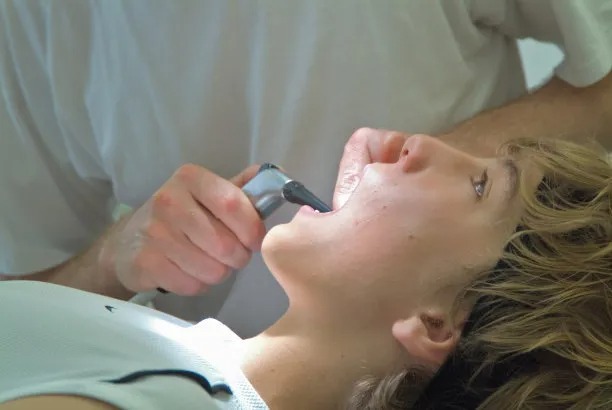Summary: Dental implant surgery can significantly enhance dental aesthetics and functionality for those missing teeth. However, achieving optimal recovery and successful outcomes requires careful consideration of various precautions before the procedure. This article delves into four essential areas: choosing a qualified dental professional, understanding the procedure and aftercare, evaluating personal health conditions, and maintaining realistic expectations. Each of these aspects plays a critical role in ensuring a smooth surgical process and a full recovery. By being well-prepared and informed, patients can pave the way for a successful dental implant experience.
1. Choose a Qualified Dental Professional

The first step towards a successful dental implant surgery is selecting the right dental professional. It is crucial to look for a dentist or oral surgeon with ample experience and specialization in implant dentistry. A qualified professional should be able to showcase their previous work and patient testimonials, providing reassurance about their skills.
Furthermore, obtaining referrals from friends, family, or primary care physicians can be invaluable. These recommendations can lead to trusted practitioners who have demonstrated a high success rate in dental implant procedures. Don’t hesitate to schedule consultations with multiple professionals to assess the best fit based on expertise and comfort level.
Lastly, ensure that the chosen dental clinic adheres to stringent hygiene practices and has access to modern technology and equipment. A well-equipped facility featuring the latest imaging and surgical techniques can enhance the safety and efficiency of the surgery.
2. Understand the Procedure and Aftercare
Being well-informed about the dental implant procedure is imperative for patients. Before surgery, a clear understanding of the steps involved can alleviate anxiety and confusion. This includes knowing about the initial consultation, imaging studies, the actual implant placement, and the necessary follow-up appointments.
Post-operative care is equally important. Patients should receive detailed aftercare guidelines, which include pain management strategies, dietary restrictions, and oral hygiene practices. Following these care instructions can prevent complications and expedite recovery.
Moreover, being proactive during the recovery phase is essential. Regular check-ups to monitor healing and the integration of the implant into the jawbone ensure long-term success. Communicating openly with the dental professional regarding any concerns or unusual symptoms post-surgery is also advisable.
3. Evaluate Personal Health Conditions
Individual health factors can significantly influence the outcome of dental implant surgery. Patients should disclose their complete medical history to the dental professional, including any chronic conditions such as diabetes, osteoporosis, or cardiovascular diseases. These health issues can affect healing and the overall success of the implant.
Additionally, smoking and alcohol consumption can hinder recovery. It is recommended for patients to quit smoking and limit alcohol intake well before the surgery and during the recovery process to promote better healing.
Moreover, certain medications may interact negatively with the surgery or impede recovery. Patients must inform their dentists about any prescriptions or over-the-counter medications they are taking, allowing the dental professional to provide tailored advice and precautions to ensure a smooth surgical experience.
4. Maintain Realistic Expectations
Setting realistic expectations is crucial for a positive outlook on the dental implant journey. Patients must recognize that the implant process can take several months, with multiple appointments and healing phases involved. Understanding that immediate results are not possible can help to manage anxiety and disappointment.
Furthermore, it is vital to acknowledge that while dental implants have a high success rate, individual experiences can vary based on factors such as age, health, and adherence to aftercare advice. Being prepared for potential complications, although uncommon, helps in maintaining a balanced perspective.
Patients should also remember that dental implants not only restore function but may come with a learning curve as they adjust to the new prosthetic. Discussions with the dental professional about the anticipated changes can facilitate a smoother transition into daily life.
Summary:
To ensure a successful dental implant experience, careful consideration of the essential precautions is necessary. This includes choosing a qualified dental professional, understanding the procedure and aftercare, evaluating personal health conditions, and maintaining realistic expectations throughout the journey. Each step plays a pivotal role in not only the success of the surgery but also in the patients overall satisfaction and recovery.
This article is compiled by Vickong Dental and the content is for reference only.
Vickong Dental
Vickong Dental is a large medical group established in Hong Kong in 2008 by professors from well-known medical universities in Guangdong and Hong Kong, as well as medical doctors from key national '985' universities (including Master's supervisors and senior professors). The chain of branches brings together expert dentists with PhDs and Master's degrees from Hong Kong and Mainland China, committed to providing high-quality dental treatment.
"Vickong Dental Practices the University Motto of 'Healing and Serving Society,' with a Stable Operation for Sixteen Years. It Has Been honored with Hong Kong Enterprise Leaders's Choice,' and is a Global Trusted Implant Center for the Nobel Implant System. Recommended by Hong Kong Metro Broadcast and Guangdong Television, it Serves Customers from Over Thirty Countries and Regions, Gaining the Trust and Favor of Citizens from the Guangdong-Hong Kong-Macau Greater Bay Area and Surrounding Cities.

Thousands of customers' unanimous praise
The most recognized and highly recommended dental service by customers in the Guangdong-Hong Kong-Macau Greater Bay Area
We Ensure You Receive Detailed Care and Attention Here
Hong Kong standards, Shenzhen prices, Your Trusted English-speaking dentists

Vickong Dental Medical-Grade Instrument Disinfection Process
Vickong Dental Medical-Grade Instrument Disinfection Process

Vickong Dental Chain: A Warm and Comfortable Environment for Treatment






Appointment Hours

Q&A
Why choose Vickong Dental?
Vickong Dental practices the university motto 「Medicine to Benefit Society」, with each branch bringing together highly qualified dentists with doctoral and master’s degrees from Hong Kong and the Mainland, and has maintained seventeen years of steady operation。Recipient of 「2024 Hong Kong Enterprise Leaders Brand」, 「2025 Hong Kong Enterprise Leaders Brand」, a Nobel Biocare Global Trusted Implant Center, and a brand recommended by Metro Radio Hong Kong and Guangdong TV。
To date, we have served customers from more than thirty countries and regions,earning exceptionally high word-of-mouth recognition and trusted recommendations from residents across the Guangdong-Hong Kong-Macao Greater Bay Area and surrounding cities
We have eight major branches in Zhuhai、Shenzhen,and a consultation and service assurance center in Hong Kong,so you can book a free consultation at any time for any questions,which is very reassuring.
If I do not accept the quotation after the CT scan, will I be charged??
No! As long as the actual treatment has not started, you will not be charged any fees.
Will there be any additional charges during the treatment process?
No, there won’t be any additional charges. Before treatment begins, we will clearly explain the treatment plan and its corresponding fees. Only after the patient agrees and signs the consent form will we proceed with the dental service.
Can I pay in Hong Kong dollars?
Yes. Vickong Dental accepts payment in Hong Kong dollars. The amount will be converted based on the exchange rate of the day, and the applicable rate will be clearly communicated to you in advance.
Can I reschedule my appointment at any time?
Yes. Please contact us via **WeChat** or **WhatsApp** as early as possible, providing your original appointment time and details, along with your preferred new date and time slot for rescheduling.













